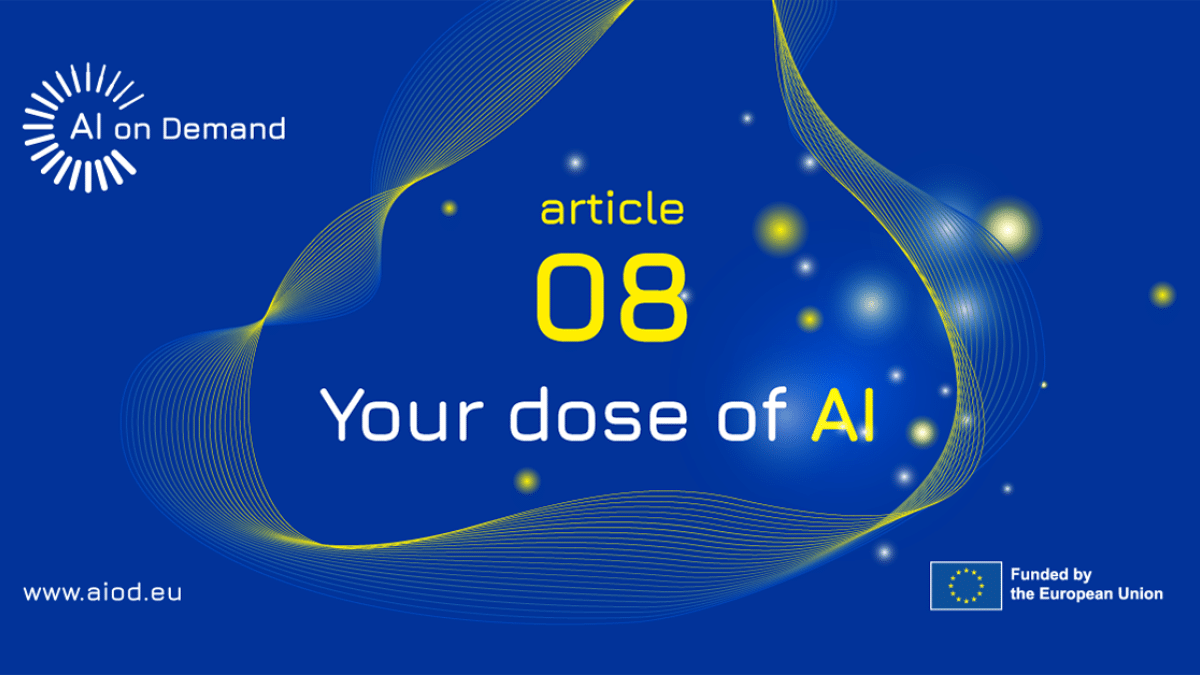The AI4Europe Reproducibility Initiative

What Is Reproducibility?
Reproducibility refers to the ability to repeat an experiment or computational analysis under similar conditions and achieve the same results. It ensures that scientific claims are verifiable and trustworthy. In the context of AI, reproducibility encompasses several dimensions:
Repeatability involves re-executing experiments within the same environment, using the same code, data, and configuration, and obtaining consistent results. Replicability focuses on conducting experiments in a different environment or using slightly modified methods to verify findings. Generalizability assesses the extension of research findings to new datasets, tasks, or scenarios to evaluate their broader applicability.
Reproducibility is more than a technical requirement; it is an ethical imperative that supports rigorous validation of research outputs and promotes scientific progress.
Barriers to Reproducibility
Despite its importance, reproducibility faces significant barriers, including technical, cultural, and systemic barriers.
Technical barriers include dependency management, which refers to ensuring that all software dependencies, libraries, and configurations are adequately documented and preserved. Data accessibility is another challenge, as many datasets are proprietary, sensitive, or unavailable due to licensing restrictions, which limits their reuse. Hardware variability also presents an issue, as results may differ across hardware platforms, particularly in high-performance computing environments or when using specialized accelerators like GPUs.
Cultural barriers stem from incentive structures, where academic and industrial research often prioritize novelty and publication over reproducibility, leading to insufficient efforts to document and share resources. Time constraints exacerbate the problem, as researchers face tight deadlines that limit their ability to fully document their methods and share reproducible artifacts.
Systemic barriers arise from the lack of standards, as the absence of universal guidelines for documenting code, data, and experiments complicates reproducibility efforts. Insufficient infrastructure further hinders progress, as researchers may lack access to platforms and tools designed to facilitate reproducibility, such as version control systems or reproducibility benchmarks.
Proposed Practices for Reproducibility
To address these challenges, the AI4Europe Reproducibility Initiative advocates for a comprehensive approach to reproducibility that integrates cultural change, technical solutions, and policy frameworks. Our key proposals include cultural shifts, the recognition and rewards to encourage institutions and funding agencies to value reproducibility efforts, such as open science practices, through grants, awards, and promotions. Education and training are essential to equip researchers with the knowledge and skills to adopt reproducibility best practices through workshops, courses, and community engagement.
Technical solutions emphasize the development and promotion of reproducibility platforms that simplify the process of documenting and sharing code, data, and computational environments. Examples include containerization technologies like Docker and platforms like Code Ocean or Open Science Framework. Standardized workflows, such as creating detailed README files, adopting FAIR (Findable, Accessible, Interoperable, Reusable) data principles, and using version control, are crucial. Benchmarking efforts encourage the creation of benchmark datasets and tasks to assess the reproducibility of new research contributions.
Policy interventions focus on reproducibility requirements, with journals and conferences mandating the submission of reproducible artifacts alongside papers, including code, data, and detailed documentation. Infrastructure investment by governments and funding bodies is also essential to support reproducibility, such as cloud-based computing resources or centralized repositories.
Conclusion
Reproducibility is fundamental to scientific integrity and progress. The AI4Europe Reproducibility Initiative highlights that achieving reproducibility requires a multifaceted approach addressing technical, cultural, and systemic barriers. By fostering a culture of openness, investing in robust tools and infrastructure, and implementing supportive policies, the research community can ensure that scientific findings are reliable, impactful, and accessible to future generations.
Author: Rafael Tolosana Calasanz, Universidad de Zaragoza (UNIZAR)



